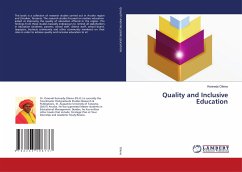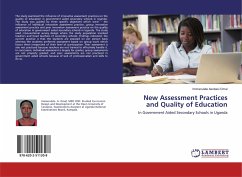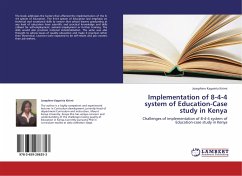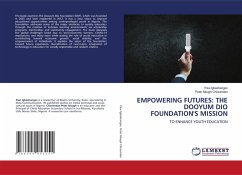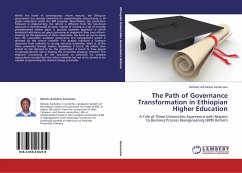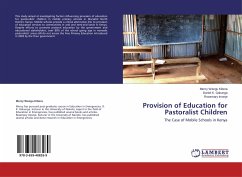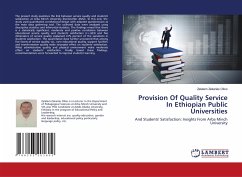
Provision Of Quality Service In Ethiopian Public Universities
And Students' Satisfaction: Insights From Arba Minch University
Versandkostenfrei!
Versandfertig in 6-10 Tagen
27,99 €
inkl. MwSt.

PAYBACK Punkte
14 °P sammeln!
The present study examines the link between service quality and students' satisfaction at Arba Minch University (hereinafter AMU). To this end, the study used quantitative correlational design with adapted questionnaire as the main data gathering tool. The collected data were analyzed using descriptive statistics and inferential statistics. The findings reveal that there is a statistically significant, moderate and positive correlation between educational service quality and students' satisfaction (r=.623) and five dimensions of service quality explained 41% percent of the variations in studen...
The present study examines the link between service quality and students' satisfaction at Arba Minch University (hereinafter AMU). To this end, the study used quantitative correlational design with adapted questionnaire as the main data gathering tool. The collected data were analyzed using descriptive statistics and inferential statistics. The findings reveal that there is a statistically significant, moderate and positive correlation between educational service quality and students' satisfaction (r=.623) and five dimensions of service quality explained 41% percent of the variations in students' satisfaction. The quantitative data further uncovered that among five facets of service quality, viz., core educational quality, support facilities and transformative quality make strongest effect on students' satisfaction. Whist administrative quality and physical environment make moderate effect on students' satisfaction. Finally, based these findings, recommendations were forwarded toimprove students' learning.



